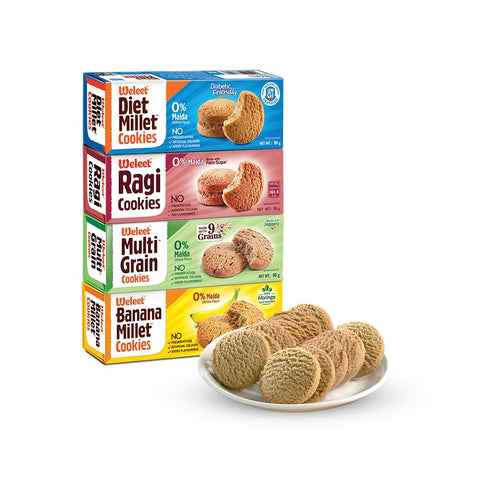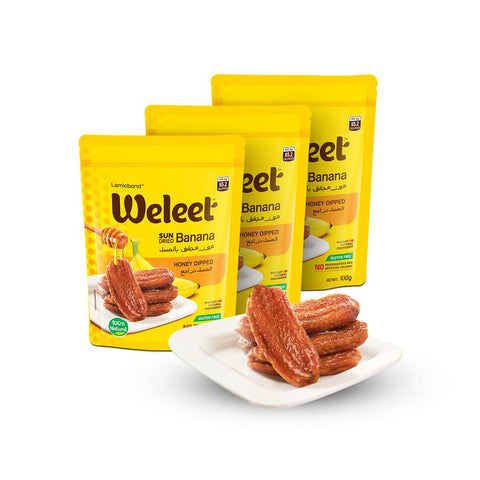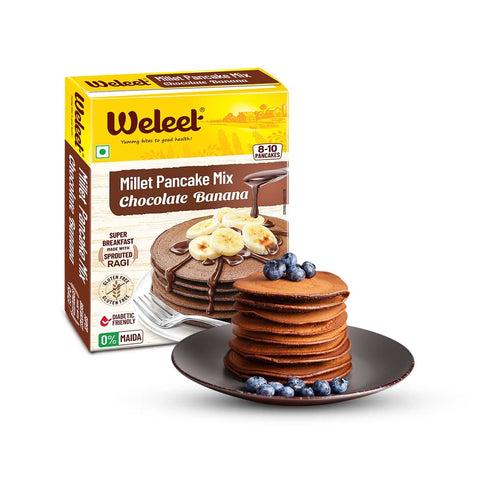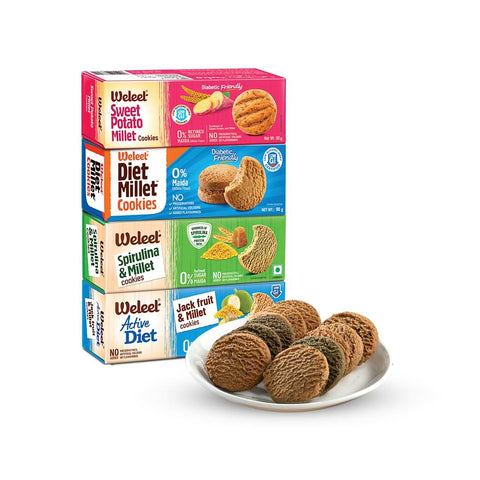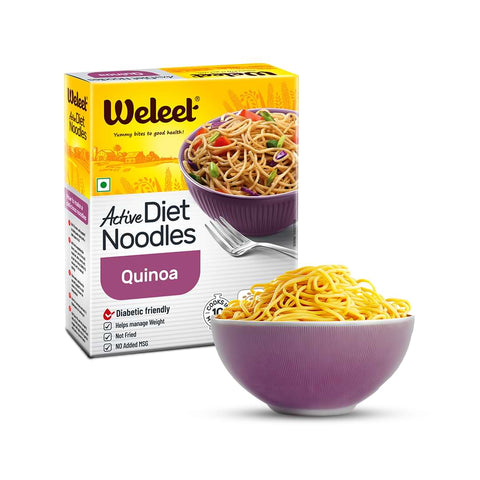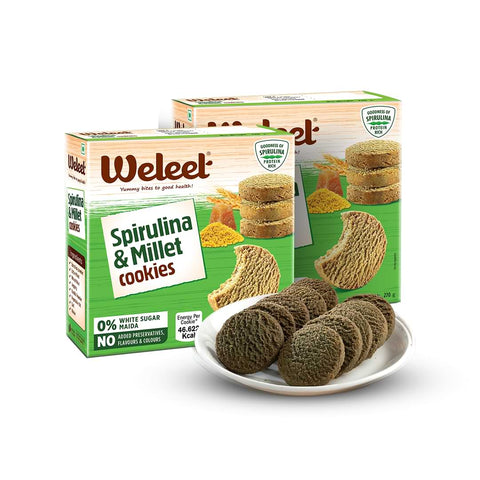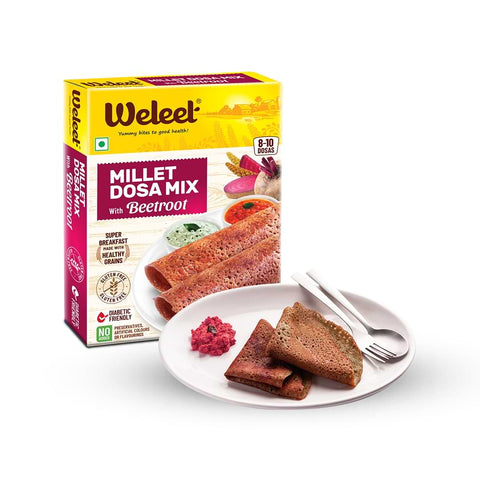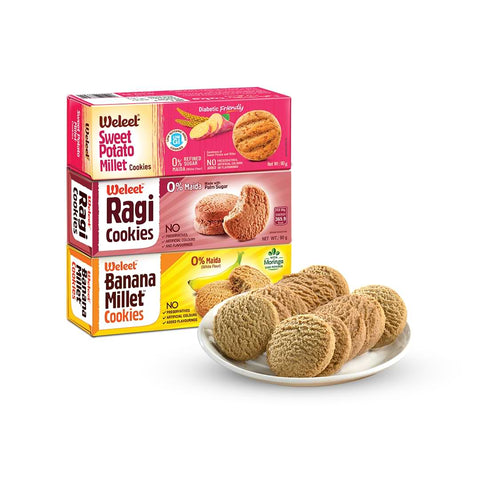The world is running now with all the fast food and the junk coming along with it, which affects everyone’s health with the cause different illnesses being a part of it. This has to take a turn around and people have noticed this cycle and want to make a change to it. There is a common myth around that eating healthy is not tasty and this is also one of the major reasons why people stick on to eating junk food!
Millet has been a part of daily diet for a long time and it took a while for people to understand the heal benefits of consuming millet. Millet is filled with nutrients compared to rice that is a huge source of carb. Millets are produced in an organic way as they are not poured with pesticide like other vegetation and this also one of the reasons they are filled with rich proteins.
What are the benefits of using millet?
Great for regulating blood sugar level
When contrasted to wheat and corn, millets have a higher nutritional content, are gluten-free, and have a lower glycemic index (54–68). High levels in dietary fiber, proteins including all of the essential amino acids, minerals, and vitamins all contribute to the stabilization of blood sugar levels. Millets can be included in a diabetic patient’s balanced diet to lower blood sugar and improve insulin sensitivity.
Helps in stimulating weight loss
For anyone trying to lose weight and drop a few extra pounds, millets are a godsend. The BMI of obese persons can be significantly reduced by incorporating millets into the normal diet, such as millet flour or by eating millets for breakfast. Daily substitution of millets for rice can improve gut health, reduce fat accumulation, and aid in long-term weight loss.
Helps with cardiovascular diseases
Millets contain a staggering array of antioxidants, such as beta-glucans, flavonoids, anthocyanidins, lignans, tannins, and policosanols. These antioxidants are essential for decreasing LDL cholesterol and total cholesterol as well as for keeping blood vessels clear of clogs and maintaining blood vessel health, which reduces the risk of cardiovascular disease and stroke.
Fights cancerous cells
Research has shown that millets, including the foxtail and proso kinds, are efficient at slowing the formation of malignant cells in a variety of tissues. Millets include phytochemicals that have antiproliferative properties and reduce the growth of cancer cells inside the gut, colon, and liver without harming healthy cells.
Great for the functioning of digestive system
Millets are a good source of dietary fiber, which helps the digestive tract function better. It treats irregular bowel movements, flatulence, bloating, and cramps. It also strengthens the immune system and enhances the general health of other crucial organs including the liver and kidneys.
Great for skin
Methionine and Lysine, two potent amino acids found in millet, both aid in the production of collagen. Collagen is the material that keeps skin tight, prevents skin from drooping, and aids in delaying the appearance of wrinkles. It slows down the onset of premature ageing.
Reduction in oxidative stress
Numerous chronic ailments, such as diabetes, arthritis, and neurological diseases, can be brought on by oxidative stress. Because it causes more oxidative stress inside the brain, a high-fat diet also raises the risk of dementia. Antioxidants are vital in decreasing oxidative damage, according to doctors. Antioxidant-rich diets may guard against oxidative damage. Antioxidants found in millet may strengthen the body’s defenses against oxidative stress, which is linked to disease and ageing. Antioxidants may lower the chance of developing chronic diseases.
Millet affecting women’s health
How millet helps women with PCOS
Insulin resistance is one of the main causes of PCOS. Insulin resistance is less likely if protein and carbohydrate intake are balanced. Complex carbs and protein are abundant in millets. Glycemic index is low for millets. Low glycemic index foods should be consumed since they don’t cause sharp insulin spikes, which lessen PCOS symptoms, maintain blood sugar levels, and cause fewer heart-related disorders. Dietary fiber is abundant in millets. Fiber aids in the digestion of sugar, reducing insulin spikes, one of the indications of PCOS. Because PCOS patients have irregular metabolisms, fiber also aids in the metabolism of estrogen. Additionally, fiber aids in healthy digestion.
Why millet in needed for pregnant women
Because it is high in iron, proteins, antioxidants, dietary fiber, calcium, magnesium, potassium, and folate, all of which are nutrients that pregnant women need more of, millet is one of the nutrient-rich grains for them. Hemoglobin levels are raised by its high iron concentration.
Niacin, folate, and pantothenic acid are among the B vitamins that are abundant in it. These nutrients are important for the body’s many enzymatic processes as well as the regular operation of the organs.
Prebiotics are an insoluble fiber found in millet. It helps the gut’s beneficial microorganisms. Insoluble fiber aids in the relief of symptoms such as cramps, bloating, gas, and constipation.
If you wish to keep your heart healthy, this grain may be a better choice to add to your diet.
A considerable portion of magnesium is present, which helps to regulate blood pressure. Millets also include a lot of dietary fiber. Which makes it a wise decision for those who have excessive cholesterol levels.
For thousands of years, mankind has cherished the ancient grain millet. Additionally, cattle and birds eat millet. It is becoming more and more well-liked since it grows quickly, resists drought, and uses little water. A great source of protein, fiber, essential vitamins, and minerals is millet. The protection of cardiovascular health, delaying the development of diabetes, assisting individuals in achieving and maintaining a healthy weight, and controlling intestinal inflammation are just a few of the potential health advantages of millet. An adaptable grain is millet. It may be prepared in a variety of straightforward ways, making it simple for people who have celiac disease to incorporate this gluten-free grain into their diets.




